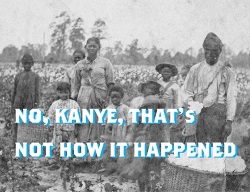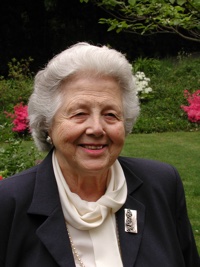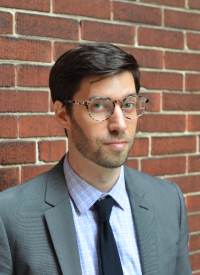Utilizing research from her dissertation, third-year PhD student Lauren Stauffer contributed an op-ed, titled “How President Trump Shattered the Bond Between Republicans and NATO,” to the Washington Post’s Made by History column. The article compares the Republican Party’s longstanding support for NATO, particularly under President Ronald Reagan, to the current relationship between the alliance and President Trump.
Author: Parker, Heather A
Take History BACK from White Supremacists
by undergraduate student, Rohit Kandala ’19
On March 15, 2019, the world stood in silence as 50 people were massacred and 50 more were injured in the Christchurch mosque shootings. I remember waking up that morning and staying silent for a couple hours as the news reports started to pour in. Throughout the entire ordeal, what saddened me most was that Christchurch wasn’t a surprise—and no one can pretend that it was a coincidence.
Luckily, most media outlets no longer phrase the systematic and global problem of white supremacy as a “rising threat”—it’s already clear that it’s here and it’s not a fringe movement. But, this article isn’t about white supremacy as much as it is about how history has been kidnapped and corrupted by this movement to serve its perverse needs. Misinformation is the problem.
Before I go further, I have two conditions: I will not list the perpetrator’s name as that is exactly what he and his movement want and I will list two assumptions I have:
1. Currently, History is expressed through more mediums than ever. While, K-12 education is still formative, online mediums like Facebook & YouTube are increasingly used more often either for education or entertainment. Unfortunately, most of weaponized history also occurs on these new and less regulated platforms.
2. Fortunately or unfortunately, History is fluid & is constantly re-shaping itself. This results in different interpretations over time, and people can exploit that to create the representation they’d like.
Both these statements, which I hold to be true, have wide-ranging effects on History and how it’s understood.
First off, the fact that history is now more accessible because of advances in digital communications is a great thing! In fact, it’s a cost-efficient method to reverse the worrying trend of apathy for history amongst the public. I am an adamant supporter of using YouTube as a social media platform for history enthusiasts and professionals alike—it’s the future that history needs to adapt to. But, the accessibility of these services also allow figures such as Alex Jones (who had 2,431,237 subscribers before YouTube disbanded his channel[1]), Stefan Molyneux (911,000 subscribers[2]), and Sargon of Akkad (927,000 subscribers[3]) to flourish and promote their “free-thinking and rational community”.
That’s BS.
All these channels are not the same, but they are enablers for white supremacists to thrive in today’s information age. No channel wants to outright promote “hate speech” or “racism” that violate community guidelines—but they construct bloated arguments with a thin sprinkle of facts that let the viewer, an impressionable male usually in their early-to-mid 20s, “come” to the conclusion that white supremacy is supported by history. For example, “Replacement Theory”—which motivated the perpetrator to do what he did—is a very popular theory covered by YouTuber Lauren Southern (she has 699,000 subscribers while the video has 647,119 views[4]). But, these channels grow even more impactful on online messaging boards like Reddit and 4chan—which are far less moderated and thus even more crass.
This brings me to my second point: the fluid nature of history. Historians rarely agree even on the most minute of details, but we do agree that history is subjective and dependent on the person who wrote it. At UConn, we learn this in our HIST 2100, “Historian’s Craft” class in order to become better historical thinkers. No serious historian thinks of history as deterministic and if they do—they’re probably from the 19th century. This ability to manipulate information like this allows for white supremacy opinion leaders to cater to their audience while barely carrying the “I’m a legitimate historian” card. Moreover, if they’re actually judged by the same intellectual rigor students and academics are put through—they can claim to be “entertainers”. You cannot claim to be both, and if you do, you are none of those things.
This point brings me to my solution to the misinformation problem—and it is not an easy problem to fix. Yet, one thing is clear, accessibility should not be tampered with. It is the internet’s, and by extension, YouTube’s greatest strength. Rather, the solution lies in education. As stated above, students of history, if studied seriously, are subjected to historical analysis standards. A good analysis would have high quality sources, a strong thesis that is prevalent through the entire paper, and an overwhelming amount of evidence. How does this apply to online spaces like YouTube? For example, the quickest way to debunk an argument in favor of scientific racism is to evaluate the quality of the sources. Oftentimes, they are poor in quality and that is more than enough to de-rail said argument. Historical analysis is a learned skill and educating (or even simply maintaining an online presence) people about it could go a long way.
Again, I am hopeful—probably foolishly so. At least, the mass media is starting to acknowledge the historical misinformation in the digital space. A recent article by the NY Times succinctly and clearly defined the problem behind “Replacement Theory” and how it’s a continuation of the problem. But, pointing the problem simply won’t do. White supremacists don’t read the NY Times or traditional media outlets, they go on YouTube, Facebook, Reddit, 4chan, Twitter and other networks[5].
That’s why I insisted on posting this on The History Department’s website at UConn—my audience is my professors, grad/Ph.D students, and (some) undergraduates. We are trained to think historically at a time when our discipline is being trampled because we haven’t properly adapted to digital spaces (although there’s been some recent breakthroughs in public history).
It’s time to take back history to what it’s about. We are all interested in history for various reasons. Some of us are obsessed with maps, some with battle dates, some with political history, and some with area studies. But, we all appreciate the past for what it is, and it’s our duty to inform others of worrying trends, misinformation, and hopefully how great studying history can be. History isn’t about hate or love—it’s about empathy and “how”.
If not, New Zealand—a country that continually strives to be better for all its peoples—and others like it will take the fall. Please—let this be the last. When someone asks me to write about this period 50 years from now, I’d like to say that New Zealand was the turning point when we historians banded together and proactively swept away the pseudo-intellectualism of white supremacy.
And if the problem still seems like a world away and a tiny threat (even though the internet isn’t dependent on location)—just take a peek in your backyard[6].
[1] “The Alex Jones Channel”, Channel User Statistics, Socialblade, accessed March 26, 2019, https://socialblade.com/youtube/user/thealexjoneschannel
[2] “Stefan Molyneux”, Channel User Statistics, Socialblade, accessed March 26, 2019, https://socialblade.com/youtube/user/stefbot
[3] “Sargon of Akkad”, Channel User Statistics, Socialblade, accessed March 26, 2019, https://socialblade.com/youtube/user/sargonofakkad100
[4] “Lauren Southern”, Channel User Statistics, Socialblade, accessed March 26, 2019, https://socialblade.com/youtube/channel/UCla6APLHX6W3FeNLc8PYuvg
[5] Emma Grey Ellis, “The Year the Alt-Right Went Underground,” WIRED, January 1, 2019, https://www.wired.com/story/alt-right-went-underground/
[6] Rachel Philipson, “Known white nationalist organization flyers appear on UConn campus”, The Daily Campus, March 14, 2019, http://dailycampus.com/stories/2019/3/14/known-white-nationalist-organization-flyers-appear-on-uconn-campus
The History of the Largest Foreign-Born Population in the State
This week’s UConn Today features Professor Fiona Vernal discussing research on the West Indian community, which is – according to the US Census – the largest immigrant population in Connecticut.
“No, Kanye, That’s Not How It Happened.”
In the latest issue, UConn Magazine talks to Professor Manisha Sinha about history lessons that tell the truth about slavery in the U.S. and more.
UConn Magazine talks to Professor Manisha Sinha about history lessons that tell the truth about slavery in the U.S. and more.
In Memoriam: Dr. Emiliana Pasca Noether

Emiliana (Liliana to family) was a professor of Italian history, whose career paved a path for the recognition and promotion of future generations of female scholars. After receiving her Ph.D. in history from Columbia University in 1948, Professor Noether taught Italian history at New York University, Rutgers University, Regis College, Simmons College and the University of Connecticut, where the Emiliana Pasca Noether Chair in Modern Italian History was established in her honor upon her retirement in 1987. Following her retirement, she continued to share her learning by teaching in various elder education programs.
Professor Noether was appointed twice as a Senior Fulbright Research Scholar – in 1964-65 and in 1982 – to further her scholarship in Italian historical studies. She was among the first group of fellows at Radcliffe College’s Bunting Institute when it was founded in 1961 to promote women scholars, an experience that she described as “a second chance…after having been relegated to the professional dustbin” for taking time off to be a parent. She went on to serve as president of the Berkshire Conference of Women Historians and the New England Historical Association, and to chair the American Historical Association’s Committees on Italian-American Historical Relations and Women Historians. She authored nearly 100 professional articles and books on Italian history and cultural and intellectual ties between Italy and the English-speaking world, and mentored many graduate students – both women and men – over her long career.
Liliana was born in Naples, Italy and emigrated to the United States as a young child. She grew up in New York City in a family of Italian musicians and teachers. In 1942, she married Gottfried (Friedel) E. Noether (1915-1991), a statistician and refugee from Nazi Germany, with whom she shared a passion for music, the arts, and worldwide travel. She is survived by her daughter, Monica Noether, and two grandchildren, Braden and Shannon Harvey.
First Foreign Policy Seminar of Fall 2017
 Please join us for the first Foreign Policy Seminar of Fall 2017!
Please join us for the first Foreign Policy Seminar of Fall 2017!
The guest speaker is Daniel Immerwahr of Northwestern University. The title of his talk is “Nobody Knows in America, Puerto Rico’s in America: Colonial Medicine, Militant Nationalism, and the U.S. Empire.”
The talk will be held on Friday, September 22 in the Wood Hall Basement Lounge. A reception with refreshments will start at 4:30pm and the talk will begin at 5pm.
Professor Immerwahr is an historian of the United States and the world, serving in the history department at Northwestern University. His first book, Thinking Small (Harvard, 2015), offers a critical account of the United States’ pursuit of grassroots development at home and abroad in the middle of the twentieth century. He is currently working on another book, How to Hide an Empire, about the United States’ overseas territory.
8/28 – 11th Annual History Graduate Student Research Conference
Conference Schedule – Monday, August 28, 207
All sessions held in the Class of ’47 Room in the Homer Babbidge Library
Session A: 1:15-2:45 pm
Panel One: Governance, Institutions, and Movements in New England
Chair: Danielle Dumaine
Nicole Breault, “Peace and Good Order in the Streets”: The Work of the Constable’s Watch in Eighteenth-Century Boston
Abdullah Alhatem, “The Domestic Slave Trade in New England”
Britney Murphy, “The Fall of Mount Trashmore and the Rise of Community Activism: Environmental Justice and the Politics of Inclusion, Bridgeport, CT (1991-Present)”
Commentator: Matthew Guariglia
Coffee Break – 2:45-3:00
Coffee, tea, assorted cookies
Session B: 3:00-4:45 pm
Panel Two: Power and Influence in World Affairs
Chair: Maggie Stack
Erik Freeman, “‘True Christianity’: The Flowering and Fading of Mormonism and Romantic Socialism in Nineteenth-Century France”
Frances Martin, “Who’s Watching the Clock? Rise of the Doomsday Clock as a Pop Culture Phenomenon”
David Evans, “False Harvest: U.S. Foreign Relations and the Dream of Agricultural Power during the 1970s”
Lauren Stauffer, “From the North to the South Atlantic: NATO and the Falklands War”
Commentator: Gabrielle Westcott
Keynote Address: 5:00 pm
Jonathan Chu
Professor of History, University of Massachusetts-Boston
Editor, New England Quarterly
“Wrestling with the Devil: An Historian Becomes an Editor”
10/11 – The Hidden History of the Underground Railroad
Eric Foner
October 11, 2016, 4:00 PM
“Gateway to Freedom: The Hidden History of the Underground Railroad”
About Prof. Foner:
10/7 – “The Texas Gun Frontier and the Travails of Mexican History”
Please join us for the first Fall 2016 Foreign Policy Seminar!
University of California, Berkeley
“The Texas Gun Frontier and the Travails of Mexican History”
Friday, October 7 – 4:30pm
Brian DeLay received his PhD from Harvard University in 2004. DeLay’s 2008 book, War of a Thousand Deserts: Indian Raids and the U.S.-Mexican War (Yale University Press), won prizes from several different scholarly organizations. He has served as a Fulbright Distinguished Lecturer, and has received fellowships from the ACLS, the American Philosophical Society, the Harry Frank Guggenheim Foundation, and other organizations. He is the editor of North American Borderlands (Routledge, 2012), and is now at work on a monograph titled “Shoot the State: Arms, Capitalism, and Freedom in the Americas Before Gun Control,” under contract with W.W. Norton.
Huskies Forever Alumni Weekend: History Events Fri, Oct 21
History will again participate in the Huskies Forever Alumni Weekend! We are excited to offer two interesting panel discussions!
“Humans and Animals in History” – faculty panel, featuring
Kenneth Gouwens
Ricardo Salazar-Rey
Nancy Shoemaker
The faculty panel will be followed by refreshments.
Professional Life After History – alumni career panel, featuring
Beth Kilmarx
Jonathan Krezel
Virgilio Lopez
Matthew Necci
This information will be updated as the event date draws closer. For more information about the events across campus that weekend and to register to attend, please visit huskiesforever.uconn.edu